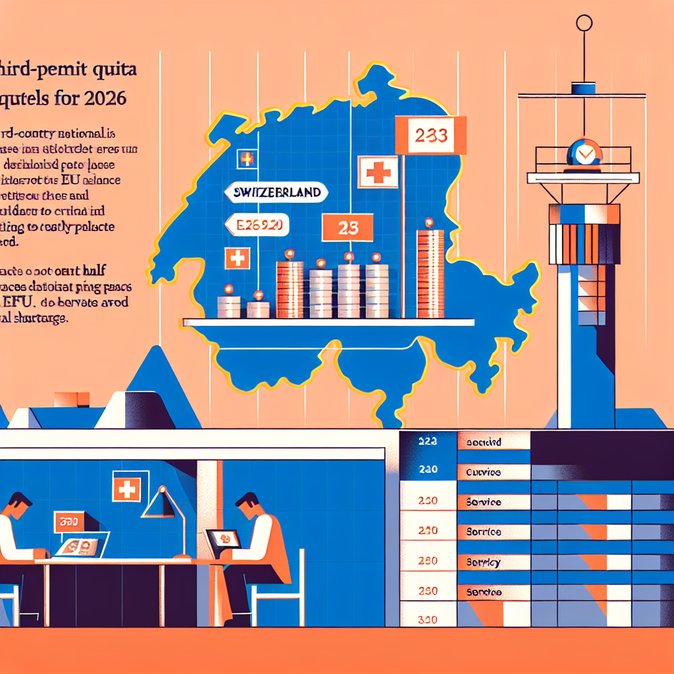
Swiss employers will face the same numerical ceilings for non-EU hiring in 2026 as in the current year, after the Federal Council decided on 19 November to roll over existing quotas. The confirmation was published on 21 November and quickly welcomed by the national employers’ federation.
The ordinance reserves 4 500 B residence permits and 4 000 L short-term permits for highly skilled professionals from so-called third countries. A separate envelope of 3 000 L and 500 B permits is set aside for EU/EFTA service providers posted to Switzerland for assignments lasting over 120 days. UK nationals retain their bespoke quota of 1 400 L and 2 100 B permits under the Services Mobility Agreement.
![Federal Council Keeps 2026 Work-Permit Quotas Unchanged, Offering 8,500 Places for Third-Country Talent]()
Federal statistics show that only 52 % of the third-country quota and 38 % of the service-provider quota had been used by end-September 2025. Despite this head-room, cantonal migration offices in Zurich, Vaud and Zug caution that premium-tax and fintech employers tend to exhaust local allocations early in the year. Companies are therefore advised to file applications as soon as employment contracts are signed, especially for Q1 arrivals.
For HR teams the status quo means predictability: no urgent policy adjustments are needed, and salary thresholds, labour-market tests and documentary requirements remain the same. The Federal Council hinted that digital filing via the EasyGov portal will become mandatory for large employers in 2026, a move expected to cut processing times by 20 %.
The 2026 quotas take effect on 1 January 2026; unused 2025 places cannot be carried over.
The ordinance reserves 4 500 B residence permits and 4 000 L short-term permits for highly skilled professionals from so-called third countries. A separate envelope of 3 000 L and 500 B permits is set aside for EU/EFTA service providers posted to Switzerland for assignments lasting over 120 days. UK nationals retain their bespoke quota of 1 400 L and 2 100 B permits under the Services Mobility Agreement.

Federal statistics show that only 52 % of the third-country quota and 38 % of the service-provider quota had been used by end-September 2025. Despite this head-room, cantonal migration offices in Zurich, Vaud and Zug caution that premium-tax and fintech employers tend to exhaust local allocations early in the year. Companies are therefore advised to file applications as soon as employment contracts are signed, especially for Q1 arrivals.
For HR teams the status quo means predictability: no urgent policy adjustments are needed, and salary thresholds, labour-market tests and documentary requirements remain the same. The Federal Council hinted that digital filing via the EasyGov portal will become mandatory for large employers in 2026, a move expected to cut processing times by 20 %.
The 2026 quotas take effect on 1 January 2026; unused 2025 places cannot be carried over.





